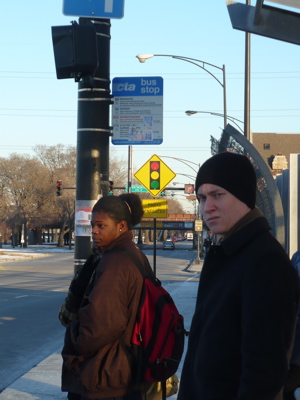When the report on precarity in higher education was first publicly released, the presentation was followed by a number of panel discussions. Here I’m going to try to translate a few people’s personal tales of precarity. Today we’ll start with that of Aurélie Legrand.
Moderator: We have all been precarious at one time or another… perhaps not all but many of us. We have picked a few people who represent the different categories [of precarious work] we presented a moment ago, with all their complications. Our precarious colleagues aren’t here to cry over their lot… Do you want to introduce yourself?
“Aurélie Legrand, I’m 33 years old, I’m at the master’s level in my studies [bac+5], with a decade of professional experience in the private sector. It’s been a little more than a year that I’ve been a contract worker at the university, and so I’m part of what they call the precarious workers of higher education. So I work on a short-term contract (CDD) as a research engineer (ingénieur d’études) in a social science lab at the university. The post became available on May 1st, 2008. I came to apply for it in December 2008, and… I can tell you that it was a little bit hard for me to accept this post, even though it did represent a good opportunity for me at the time. It was hard to accept because they offered me a very short-term contract. So, I had an interview in December, and they offered me a short-term contract (CDD) from the beginning of January 2009 to May 1st 2009, so a 4-month contract, because the permanent occupant of the job who went to the private sector on May 1st of the year before could return to their job on May 1st the year after. So… I had to leave the region where I was coming from because [unclear], anyway for this 4-month contract.
“Finally I accepted this offer, and the permanent person [titulaire] didn’t take the job back on May 1st in 2009, so they had me sign a second short-term contract from May 1st to June 30th. A two-month contract. It had a gap of two months built in for the summer. So honestly the situation wasn’t really good at all. But finally, when they brought me in to sign this second short-term contract, they realized it was a category A job, so there wouldn’t be a break in the contract. So they extended the contract to August 31st 2009. And… what else was I going to tell you… so during that summer, sometime around mid-July, I got a letter from human resources indicating that I was summoned on September 1st, in the early morning, to sign a new contract, this time from September 1st until August 31st — so a year-long contract. So I was brought in to sign this new contract and things more or less worked out because that was the end of this deal with the two-month summer interruptions.
“That said, I was pretty much astonished by the way the human resources people had us sign the contracts. We were brought in collectively, all the contract workers summoned on September 1st. They had us in a room that might be about the same as this auditorium. There was no real group welcome, everyone waited in their own corner, and finally two people came in with the contracts. The group was divided in two, maybe from the letter A to the letter L on one side and the rest on the other, and everyone lined up to sign their contract. So you didn’t have the time to really read all the conditions in the contract; you signed, and if you had questions it was pretty hard to ask them, to have any personal discussion of your work contract. Voilà.
Continue reading “Testimonials of precarity in French universities”
